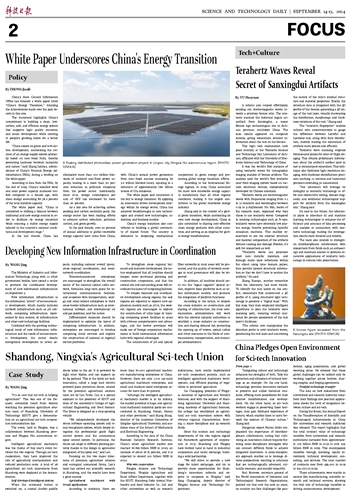
The 17th Pujiang Innovation Forum, held in Shanghai from September 7 to 10, saw 300 experts from 40 countries discuss its overarching themes, "Sharing innovation and shaping the future" and "Towards an open environment for scientific and technological innovation."
China is committed to building an inclusive, open, fair, just and nondiscriminatory environment for the development of science, technology and innovation, Chinese Minister of Science and Technology Yin Hejun said in his keynote speech.
Achievements and commitments
Yin also outlined China's achievements:
-Sci-tech cooperation relations have been established with more than 160 countries and regions, and 116 inter-governmental agreements signed on sci-tech cooperation.
-China's International Science and Technology Cooperation Initiative has been released globally, contributing Chinese solutions and wisdom to global science and technology innovation and development.
There are several future commitments:
-China will continue to strengthen open cooperation in science and technology, in accordance with the common aspiration of people in?all countries as well as reflecting the trend of sci-tech development worldwide.
-Inter-governmental and non-governmental cooperation in science and technology will be deepened, and people-to-people exchanges in science and technology strengthened.
-Joint research and strategic cooperation projects will be initiated in key areas to address global scientific development needs and tackle common challenges.
-China will continue to build a high-quality Belt and Road into a road of innovation, staying committed to the principle of extensive consultation, joint contribution and shared benefits.
-China will also participate in global innovation governance, and boost the progress of human civilizations with more sci-tech power.
Integrating sci-tech with culture
"Innovation culture now holds an even more significant position within the national science and technology innovation system," said Zhang Biyong, president of Science and Technology Daily in a sub-forum.
Zhang pointed out that the integration of culture and technology has always been a driving force for social progress throughout history. He mentioned papermaking and printing technique, two of the "Four Great Inventions of Ancient China", as some of the best examples of that.
"Integrating culture and technology enhances the strengths of both. Take the protection and utilization of cultural heritage as an example. On the one hand, technology provides innovative methods to preserve and utilize historical treasures, offering more possibilities for their creative transformation and development. On the other hand, as sci-tech workers engage in preserving these heritages, they gain firsthand experience of history, which enables them to carry forward the essence of Chinese culture," Zhang said.
Hungarian expert Bulcsu Godri emphasized the importance of interdisciplinary collaboration, noting that cultivating an innovation culture requires fostering cross-disciplinary strategists who can connect different fields to achieve integrated innovation. A cross-disciplinary approach enables us to leverage diverse perspectives, resulting in solutions that are technologically advanced, culturally resonant, and socially impactful.
Paul Burrows, secretary general of the World Association of Industrial and Technological Research Organizations, pointed out that over the next 50 years, no country can face challenges like pandemics, aging populations, and global warming alone. He stressed that these global challenges can be tackled only by working together across borders, sharing insights, and forging agreements.
Fruitful technology transfer
The data on how researchers from universities and research institutes transform their findings into practical applications shows the level of integration between culture and sci-tech.
During the forum, the Annual Report on the Transformation of Scientific and Technological Achievements in China (for universities and research institutes) was released. The report highlights that the total contract value of technology transfers from universities and research institutions increased from approximately 109 billion RMB in 2019 to over 205 billion RMB in 2023. This encompasses transfers through licensing, equity investment, technical development, consulting, and services. The total number of contracts rose from 433,000 in 2019 to 640,000 in 2023.
These achievements were mainly in sectors like manufacturing, scientific research and technical services, showing the vital role of technology transfers in driving socioeconomic development.


 Next
Next




